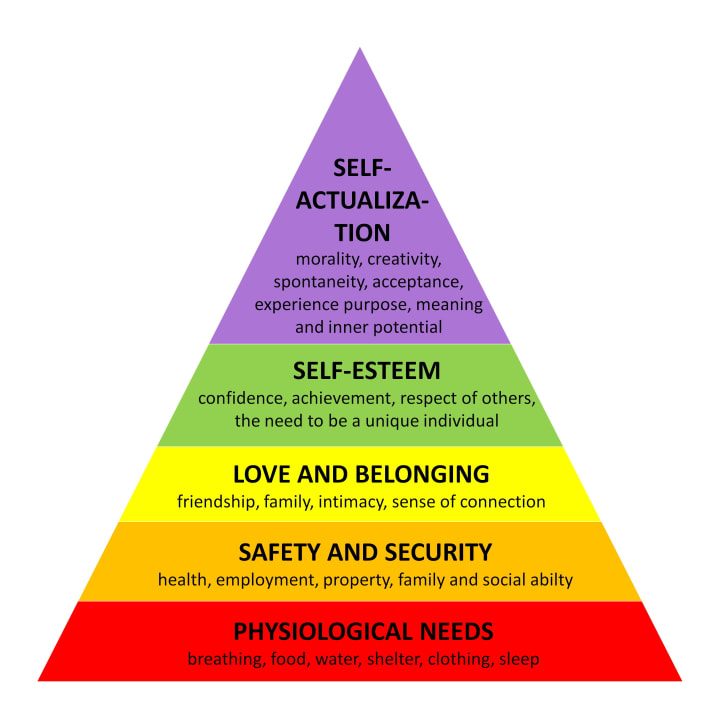10 Signs You're Emotionally Exhausted
And a few ways you may be able to remedy it.

Emotions can be confusing and sometimes hard to decipher even when they're your own. Human psychology is complex. If you're tired, you can become delirious and not even realize that is the reason.
Sometimes even after getting 6-8 hours of sleep. You can still feel this way. You'll find yourself frustratingly asking, "Why am I so tired when I actually go sleep last night?" Most likely, you are over-exerting yourself mentally, physically, or both, way too regularly.
Here are some basic symptoms of mental exhaustion:
1 - Irritability and Anxiety
You might notice you're fuse is a lot shorter than usual. Finding yourself becoming increasingly more frustrated. Resulting in excess guilt resulting in you feeling even more exhausted
2 - Unable to Focus
It will become increasingly harder with each day that passes to nail down thoughts or stay on task. Will your to-do list gets longer, you become increasingly overwhelmed, making it even harder to concentrate.
3 - Feelings of Hopelessness or Detachment
You find yourself thinking to yourself "life is too much" or try convincing yourself things would be easier if you cared less. You might actually start to distance yourself from hobbies, going out with friends and family, or doing activities with your children.
4 - Always Tired, No Matter What You Do
Every day you become more frustrated because no matter how much you sleep you still feel ridiculously fatigued. Even when your mind races, your body can't take another step. You might even dedicate a single day to relaxing to only feel the dread of feeling like it's just not enough. "I just need more time."
5 - You're Experiencing Physical Symptoms
Your stomach can hurt constantly without an obvious cause. You'll have headaches, change in appetite which can cause weight loss or gain. You can even become sick with the flu or colds more often.
6 - Poor Work-Life Balance
Even if your job isn't stressful, working too many long days will leave anyone feeling burnout. Getting phone calls/emails about work at home when you were already there for 12 hours. Add in an inconsiderate boss, slacking, or dramatic co-workers and customers and it's a recipe for disaster. I'm not saying to quit your job, but everyone deserves boundaries.
This goes for raising children, caring for a loved one who may be ill or geriatric. That is why professionals get paid to provide quality care. Balancing work life and family life is hard. At this point, you are now working several jobs. Not just two.
7 - Going Through Major Life Changes
Losing a loved one, having a baby, switching to a new job, moving into a new home, chronic illnesses, medical diagnosis, etc. If you are feeling any of the previous symptoms and unsure why. These big changes might be your sign you are mentally exhausted.
8 - Lack Of Support
Maybe you are a superhero and can handle anything, but perhaps the one thing you are missing is a good friend, supportive family, or therapist. Having someone there to validate your feelings of burnout can go a long way.
9 - Insomnia
Weird, right? You would think if you're so exhausted you should have no problem throwing yourself into bed and sinking into a deep sleep. Well, that's just not the case. Your increased anxiety or worry can cause racing thoughts making it nearly impossible to fall asleep.
10 - Poverty
Anyone who has lived in poverty and has been lifted out knows the impact it makes on your life. They say "money doesn't buy happiness" and to some extent that is true, only when referring to an excessive accumulation of money. That does not mean "learn to find a way to be happy when you are not sure you will have a place to live nect month."
Below is a table that exhibits Maslow's hierarchy of needs. Abraham Maslow was an American psychologist who died in 1970. His theory is that each person must be able to reach the lowest levels of the pyramid to make it to the top. And every person deserves to make it to the top. He said you don't have to reach each one 100% to make it to the next, but to some extent, you must.

If you feel you can relate to most of what was listed you must take action as you can.
If you can, remove the stressor.
If therapy is an option for you, don't be afraid to go for it.
If you have had bad experiences with a therapist in the past, don't be afraid to try more out.
Not all therapists are the same. Some people meet up with several before finding the right fit.
If therapy isn't an option because of time or money reach out to support groups, or online communities if you are feeling lonely.
You can call your doctors' office and ask about them or click this link for more information about how to find support groups.
Hit up that friend you haven't had the energy to text back and explain honestly how you feel. If they don't get it, try another friend.
Don't worry about how the job will do without you if you take a well overdue vacation. You deserve a break.
Don't feel guilty for getting the babysitter.
Take time to be unproductive.
Things like playing video games, hanging out with friends, going on walks, reading comics, doing your nails, all these things are actually productive.
Self-care is productive because, in the long run, you become more productive when you take time for yourself.






Comments
There are no comments for this story
Be the first to respond and start the conversation.